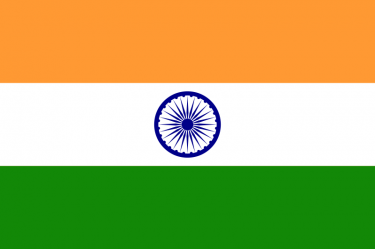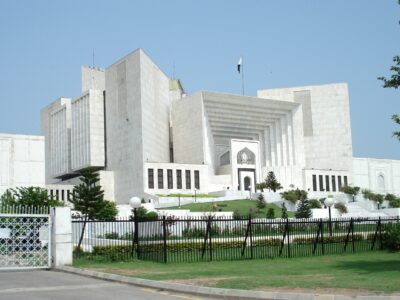ماذا يعني أن تكون هندياً؟ كتبت بريا راماني محررة مينت لونج، المجلة الاسبوعية من الجريدة التجارية مينت، مقالاً كتبته حديثاً عن شعورها بأنها ليست هندية فعلاً، مما أثار مناقشات ساخنة على الإنترنت. في حين أنها كتبت مقالتها مازحة، كانت راماني واثقة من إثارتها للمشاعر من خلال الاعتماد على الصور النمطية للسلوك الهندي.
Recently I’ve become increasingly convinced that I’m not an Indian. […] I don’t like (or understand) a single Indian soap currently on air. I never talk loudly to my maid, stockbroker or random friend during a movie. I always wait to let people exit an elevator before I enter. I don’t believe that Mumbai’s moviegoers should be forced to stand to attention every time they want to see Shrek (or anyone else) on the big screen. I don’t feel pride—only impatience that my popcorn’s getting cold—when I’m forced to listen to Lata/Asha do a slow-mo version of the national anthem before every single movie I watch in the city of my birth. […] I don’t think we’re the greatest people on earth. I don’t understand our sense of fake pride and nationalism. That whole chest-thumping Jai Ho phase? I never got it.
كتب جريتبنوج، المدون المعروف رداً على جملة راماني بأنها لا تعتقد أن الهنود هم أعظم شعوب الارض:
Absolutely we are not. No country is. Yet everyone says they are. If I had a dollar every time someone on US TV, including intellectual powerhouses like Obama and columnists of the best newspapers in the world (and no I am not referring to Fox News anchors), say “There is no doubt that America is the greatest nation of all” and similar hyperbole, I would have been able to buy myself a ticket in a major party to contest an Indian election. Similarly outrageous is the chest-thumping desi patriotism that makes us go “Ooh Aaah India” during a cricket match, a feel-good buzz as empty as the calories of the products of the companies who sponsor such slogans.
و يكمل جريتبونج:
However being proud of one’s country does not imply a belief in its “bestness” and its infallibility. As a matter of fact, patriotism lies in accepting our faults (and we have many, a few of which Ms. Ramani mentions). But that should not be taken to an extreme because then we lose sight of what it is we have got right. And once that happens, we stop working to safeguard it. When I say I am proud of being an Indian, I mean I am proud of its culture of plurality and its intrinsic tolerance of contrarianism. […] The Indian spirit of acceptance is something that is often not in evidence in some of the “freest countries of the world”. […] Unfortunately, we are marching fast down a path of competitive intolerance, one that will lead to us to become a mirror of Pakistan, characterized by bigotry of the worst kind. When and if that comes to pass, then yes I am going to raise questions about my identity as an Indian. But till that happens, it is vital, at least for me, to not only recognize what ails us but also what does not, to stay grounded between the extremes of self-flagellation and gratuitous back-slapping.
تعليقاً على نشر جريتبونج، يقول شان:
[Ramani's] article reflects a lot of what we think, but then ruins it all by equating certain traits with “Indianness”. Indianness is something that no one, not even bigger and better philosophers and sociologists than her have been able to define. But that does not stop our lady from ranting against anything she can think of. Poor writing. Poorer thinking.
تعليق آخر، يكتبه ليبرال سينيك:
What bothered me most about her article is not that her whole non-Indian thesis has a flimsy leg to stand on, but the tone of the whole article. So much condescension!
يعلق آريندام غاضباً:
I don’t know what kind of delusions some money, a western education and sheer good luck can bring to people. The real irony is that they talk about India and its people – of whom they are only ashamed if anything. I hear the same foolishly condescending tone in Priya Ramani’s diatribe. Unbelievably, these people don’t stop short of anything – having to stand up for the National Anthem, much less take pride in it, is a big pain in their bacon-puffed bottoms. Their tolerance for another Indian is zero, but they’d go drooling after a foreign guest at a club dinner wagging their tails behind them. The very perspective of the stereotypical Indian that Priya Ramani has is a western one, she is an unabashed western apologist – and she lies through her teeth when she says that white is not her favourite color of skin.
لا أعرف كيف يمكن لبعض المال، مع التعليم الغربي ومجرد بعض الحظ الجيد أن يحقق هذه الأوهام للناس. المفارقة الحقيقية هي أنهم يتحدثون عن الهند وشعبها – الذين يخجلون منهم في أي شيء. أسمع الكثير من نغمة التدني بحماقة في تهجم راماني بريا. أمر لا يُصَدَّق أن هؤلاء الناس لا يتوقفون ولو قليلاً لأي شيء – الحاجة إلى الوقوف أثناء النشيد الوطني، ناهيك عن أن نفخر به، هو الألم الكبير لهم. تسامحهم مع هندي آخر يساوي صفر، لكن يسيل لعابهم وراء ضيف أجنبي في حفل عشاء وهم يهزون ذيولهم. وجهة النظر النمطية جداً التي تملكها بريا راماني هي من الغرب، إنها مدافعة بلا حرج عن الغرب – وهي تضغط على أسنانها عندما تقول أن اللون الابيض ليس لون الجلد المفضل لها.
المدونة ماناسا ماليبيدين تظن أن مقال بريا راماني كان رائعاً ،لكنها تدرس بعض النقاط التى أدلت بها راماني:
None of the things she wrote, mean that she is not Indian. […] We aren't the greatest people in the world. True, only a zealot would say otherwise. She never understood Indians’ sense of (fake) pride, as she puts it, during the “Jai Ho” phase. Agree Jai Ho wasn't A. R. Rahman's best. I'd also like to say that Slumdog Millionaire isn't an Indian movie, but a movie about India made by a foreigner, and we need not feel proud that it won Oscars. But aren't we happy that A. R. Rahman, with that song, has catapulted Indian contemporary music (the kind I think the author likes since she doesn't like Lata's slow version of the national anthem) on to the world stage? Why shouldn't that make us happy, and proud? […] The author has harped on the stereotype that outsiders have about Indians, and tried to fit herself in it. She didn't fit in. Doesn't mean she's not Indian.
المدون راجين شيناي يرتاب من الوطنية بشكل عام:
I agree with her about the chest-thumping and the constant proclamation of patriotism that we keep indulging in. When Sachin scores runs, he is not doing it for himself, but is sweating it out for his motherland. When Amitabh is acting, the last thought on his mind is money; he is working for the greater glory of the country and to keep the country’s flag flying high. Every morning these guys wake up and feel the need to say something profoundly patriotic on their blogs or tweets. (“My caste? I am an Indian.”) As Shaw put it, patriotism is the unreasonable belief that your country is the best merely because you were born in it. Being born in India was a random genetic event. Just accept it as a fact and move on. You don’t have to be proud of it, nor have to regret it.
أتفق معها في حركة ضرب الصدر بقوة، والإعلان المستمر عن الوطنية المنغمسين فيه. عندما يسجل ساشين، فهو لا ينسبها لنفسه، ولكنه ينسب الجهد لوطنه. عندما يمثل أميتاب، فإن آخر ما يفكر فيه هو المال، فهو يعمل من أجل المجد الاكبر لوطنه وليبقى علم بلده مرتفعاً. كل صباح يصحو هؤلاء ويشعروا بالحاجة إلى قول شيء وطنيّ عميق في مدوناتهم أو في التوييتات. (“طائفتي؟ أنا هنديّ!”) مثلما وضعها شاو، الوطنية هي الاعتقاد غير المنطقيّ أن بلدك هو الأفضل لمجرد أنك ولدت فيه. كونك ولدت في الهند هو حدثاً جينياً عشوائياً . فقط تقبله كحقيقة واستمر في حياتك. ليس عليك أن تفخر به، ولا أن تندم عليه.







